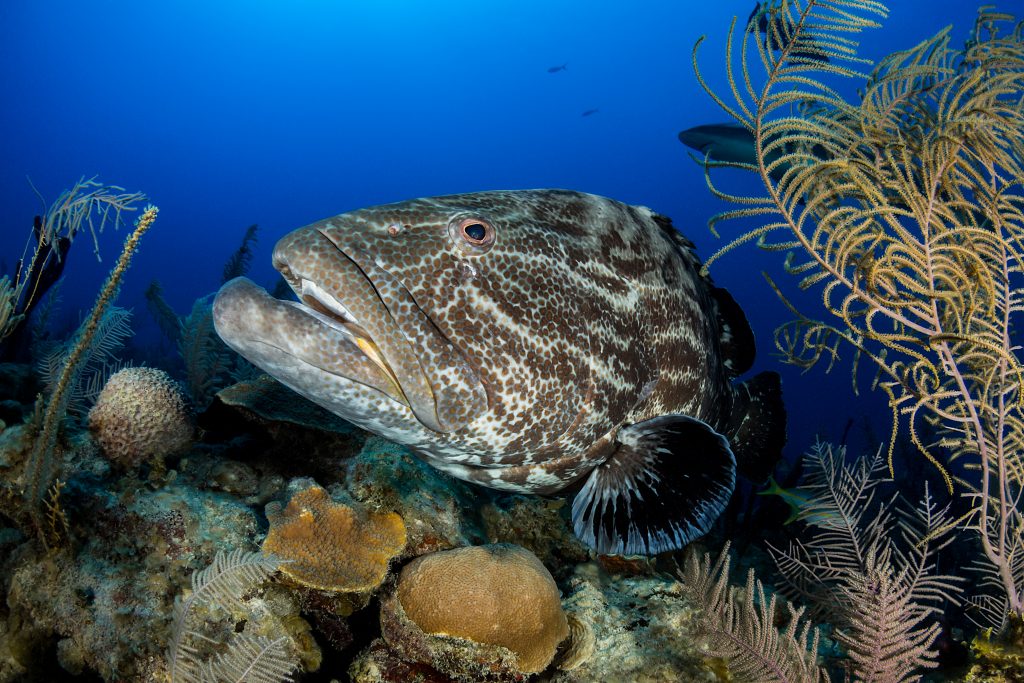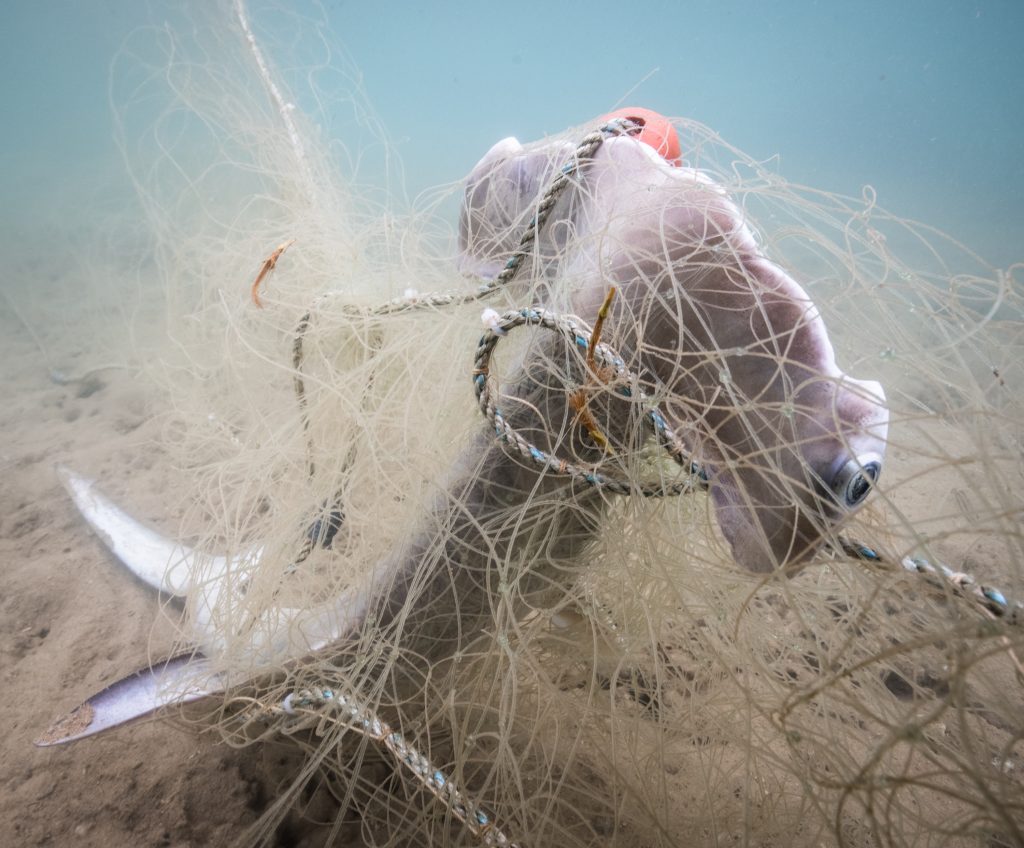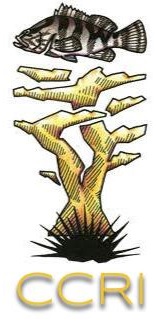
Credit: Fabrice Dudenhofer / Ocean Image Bank
Recreational and commercial fishing have caused an over-exploitation of the many fish species that form an essential part of the coral ecosystem. This may induce a shift in the feeding ecology of the coral ecosystem. The detrimental techniques involved in overfishing have also resulted in direct damage to corals and other reef species.
Reef fish are under intense pressure in Puerto Rico from a variety of user groups, including commercial fishers, recreational anglers and spearfishers, and to a lesser extent the collectors of ornamental fishes and invertebrates. Reef fisheries have plummeted during the last 20 years and show the classic signs of overfishing: reduced total landing, declining catch per unit effort (CPUE), shifts to smaller fish and less desirable species, and recruitment failures. Overfishing has been implicated in the decline in landings observed among coral reef-associated fish and shellfish species such as the Nassau (Epinephelus striatus) and Goliath groupers (E. itajara), queen conch (Strombus gigas), Snappers (Lutjanidae), and parrotfish (Scaridae). In the commercial fishery there has been a decline in the use of traps due to their high costs and relatively low yield, and an increase in the use of lines, nets and scuba gear. In an effort to reverse the decline, the Department of Natural and Environmental Resources (DNER) has enacted new fishing regulations, which will require recreational fishing licenses, prohibit recreational spearfishing with scuba gear, eliminate beach seines within three years, establish size limits and daily quotas on several species, require species-specific permits for high value and sensitive species and create no-take zones around Mona, Monito, and Desecheo Islands and the Condado Lagoon.

Credit: Toby Matthews – Ocean Image Bank
Both the Commonwealth of Puerto Rico and the Caribbean Fishery Management Council (CFMC) are the authorities for fisheries management in coastal and federal waters of Puerto Rico. Joint efforts made to achieve consistency in fisheries management have resulted in several regulations that affect both commercial and recreational fisheries. Endeavors have also been made to improve the collection of fishery-dependent data, but there is still a primary concern with the under-reporting of commercial and recreational catch databases. Enforcement of existing fishing and environmental regulations, assessments on the impacts of environmental factors on fisheries, and monitoring of commercial and recreational fisheries are needed to be implemented immediately by management offices.
References & more
- Jackson J.B.C. (2001) Historical overfishing and the recent collapse of coastal ecosystems. Science 293: 629-638
- Loh T.L., McMurray S.E., Henkel T.P., Vicente J., Pawlik J.R. (2015) Indirect effects of overfishing on Caribbean reefs: sponges overgrow reef-building corals. PeerJ. 3:e901; DOI 10.7717/peerj.901. 16pp.
- Valentine J.F., Heck Jr K.L. (2005) Perspective review of the impacts of overfishing on coral reef food web linkages. Coral Reefs 24: 209-213
